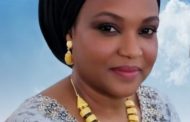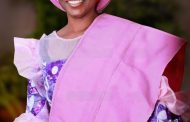As a one-time Executive Secretary of the Council for the Development of Social Science Research in Africa, (CODESRIA), the Malawi born Professor Thandika Mkandawire who passed on March 27th, 2020 was the continent’s chief knowledge officer, although such a title does not exist formally. In the context of the nexus between knowledge and the project of remaking Africa, he and any occupant of the office had one of the most sensitive positions in the world.
His colleagues, friends and fellow travellers were bound to be many and certain to remember his scholarship, symbolism and friendship upon his departure. A number of such tributes have appeared in a number of sites within and outside Africa. More are bound to appear. Now, it is Eghosa Osaghae, the University of Ibadan Professor of Comparative Politics and another major voice in African Political Science, putting pen to paper for the late Thandika, telling a rich story.

The author
By Prof Eghosa Osaghae
I first met Thandika Mkandawire in 1989, alongside Mahmood Mamdani, Micere Mugo, and Ibbo Mandaza. The occasion was the Rockefeller Reflections on Development Fellowships induction for new laureates of which I was privileged to be one. The fellowships were the highest honours in African social sciences at the time and had had Peter Ekeh, Mamdani and Thandika himself as our predecessors. In the 1989/90 class of ten fellows, four of us (Austin Isamah, Jimi Adesina, Adewuyi, and myself) were from the social sciences at Ibadan. You could say those were the days when Ibadan ruled the waves across the continent, and you would be damn right. I was as swollen headed and pompous as an Ibadan ambassador was welcome to be at the time, until I was brought down to earth by Mugo, Mamdani, and Thandika in that order. I remember Mugo, the great Kenyan literary critic who was in exile in Zimbabwe, losing her cool in Nairobi when I refused to answer a query from a graduate student at the University of Nairobi on the grounds that it was too elementary to be deserving of a response. ‘Even if you were the most intelligent political scientist on earth, which you are not’, she screamed at me, ‘you don’t have the right to think of any person too pedestrian to query you!’ ‘And, to face it really, who are you, and what do you really know?!’ My Olympian height collapsed even before it took shape. By the time Mamdani and Thandika added their voices, my humbling was complete. That day, I became born-again, and remain eternally grateful that they all forgave my trespasses and took me as a young scholar in need of proper guidance and mentoring. This opened the door to several years of adoption, respectable fraternity and learning at the feet of Thandika and Mamdani (my Ogas, Nigerian pidgin for Master) especially, as I lost touch with Micere Mugo in the years that followed.
My next meetings with Oga Thandika were in and out of Dakar where he was Executive Secretary of CODESRIA. There were no more thrashings, only encouragement, friendship and support, to ensure that I grew well. We then had more-lighter mood interactions. Once when he visited Ibadan, we – the four of us of Rockefeller fame – thought we should give him a taste of Ibadan hospitality in retaliation of his spoiling pastimes any time you were in Dakar. I was in charge of the suya arrangement from our pooled resources, and ended up buying up all the suya in Sabo that night. That is how I endeared myself to the suya merchants, and the story is told till this day of a ‘prince’ who closed Sabo for one night! All in honour of Thandika. We were really glad to be offered the opportunity to let him know the esteem in which we held him. Another time, I don’t quite remember where now, Thandika told me the story of an extensive tour of Africa he had with CODESRIA partners from which his respect for Nigeria and Nigerians as the ‘giant’ of Africa increased. Oh, Thandika was a good story teller and told the stories with the wits of a master that always filled them with important lessons. On this extensive African tour, he told me, he was reminded of how hollow independence was in Africa. From one country to another, he found from arriving at the airport and through meetings and participant observation that Africa was still very dependent, with an irritating servitude towards our colonial masters represented by the development partners he was travelling with. He was beginning to lose hope in Africa when, finally, they landed in Lagos which was the last port of call. Chaos everywhere, but so much motion and noisemaking. But, wait a minute,…as far as the eyes can see, it is African all the way! And for once, there is a reversal in the order of precedence: he now comes first! From the airport and everywhere they went, this was the experience, and his friends who had enjoyed all the privileges to this point were now in a hurry to get out of Nigeria. He told me that for that moment, he appreciated what true independence can mean. Up Nigeria!
 What would turn out to be my final meeting with Thandika on this side of existence was in 2014 when I spent time at the University of London as the Emeka Anyaoku Visiting Chair of Commonwealth Studies. He was a Distinguished Professor at the London School of Economics, where he had a mandate to open new vistas of development engagement. There was a lot of catching up and more stories to tell, but the lasting memory of that meeting for me was our discussion on religion. He’d heard that I had become a committed Christian, and he congratulated me. I thought that was the opportunity to preach the gospel. He listened very attentively and told me taking Christianity more seriously was something he was considering. At least, he said, it would cut the costs of social indulgences and encourage greater personal discipline.
What would turn out to be my final meeting with Thandika on this side of existence was in 2014 when I spent time at the University of London as the Emeka Anyaoku Visiting Chair of Commonwealth Studies. He was a Distinguished Professor at the London School of Economics, where he had a mandate to open new vistas of development engagement. There was a lot of catching up and more stories to tell, but the lasting memory of that meeting for me was our discussion on religion. He’d heard that I had become a committed Christian, and he congratulated me. I thought that was the opportunity to preach the gospel. He listened very attentively and told me taking Christianity more seriously was something he was considering. At least, he said, it would cut the costs of social indulgences and encourage greater personal discipline.
Thandika was an honest and genuine man. He had the infectious smile that told you, you were welcome. He was an accomplished and highly respected scholar, but did not have the airs that he saved me from when I first met him. Thandika was one of the few scholars I know who analyze subjects across the social sciences so easily you would think analysis is ‘natural’ to them. Whether in writing or oral exchanges, he was consistently clear-minded, thorough and persuasive. You did not have to agree with him (he was very tolerant of alternative and divergent views) but you always knew where he stood. When CODESRIA initiated the project on generations of social sciences in Africa, it was setting the appropriate framework for celebrating icons whose contributions and impacts will linger on for a long time to come. So let it be with Thandika Mkandawire. Adieu Oga.




























